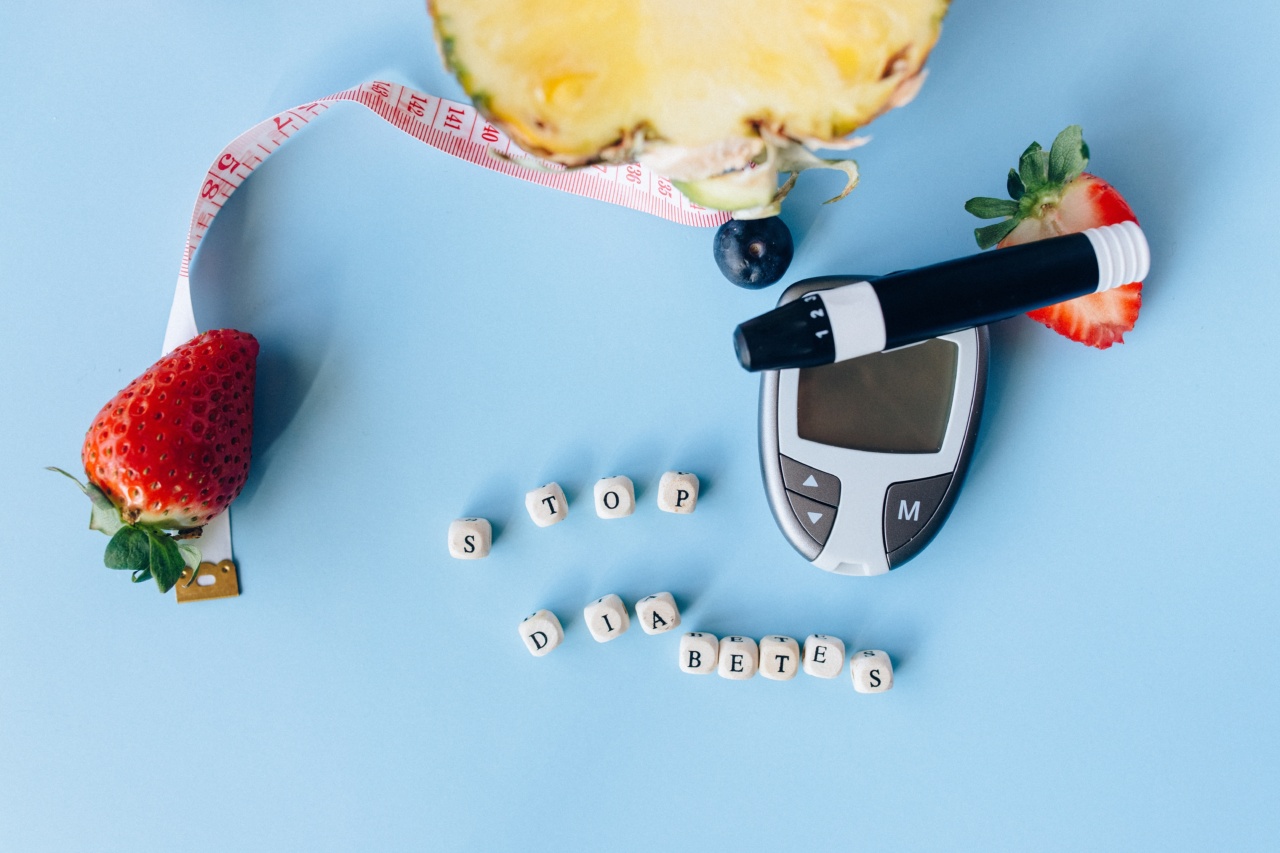Diabetes is a chronic disease that affects millions of people worldwide.
In fact, the International Diabetes Federation estimates that about 425 million adults were living with diabetes in 2017, and this number is expected to increase to 629 million by 2045.
While genetics and lifestyle factors such as obesity, physical inactivity, and poor diet contribute to the onset of diabetes, emerging evidence suggests that oxidative stress may also play an important role in the pathogenesis of diabetes.
Oxidative stress occurs when there is an imbalance between free radicals and antioxidants in the body, leading to cellular damage and inflammation.
Antioxidants are compounds that neutralize free radicals and protect the cells against oxidative stress. In this article, we will discuss the potential of antioxidants in stopping the onset of diabetes and reducing its risk factors.
The Link between Antioxidants and Diabetes
Oxidative stress has been shown to be involved in the development of insulin resistance, pancreatic beta-cell dysfunction, and impaired glucose metabolism, all hallmarks of diabetes.
A study published in the Journal of the American Medical Association found that higher levels of oxidative stress markers were associated with a higher risk of developing type 2 diabetes in women.
Another study published in Diabetes Care showed that individuals with higher levels of oxidative stress had higher insulin resistance and lower insulin sensitivity than those with normal levels.
Antioxidants can combat oxidative stress and reduce inflammation, two mechanisms that are involved in the pathogenesis of diabetes. Antioxidants can also improve cellular glucose uptake and insulin sensitivity, which can help lower blood sugar levels.
The Top Antioxidant Foods for Diabetes Prevention
The best way to get antioxidants is through a healthy and balanced diet. Here are some of the top antioxidant-rich foods that may help prevent diabetes:.
1. Berries
Berries are packed with antioxidants and fiber, two nutrients that are essential for diabetes prevention.
Blueberries, strawberries, raspberries, and blackberries, in particular, are rich in anthocyanins, a type of antioxidant that has been shown to improve glucose metabolism and insulin sensitivity.
2. Leafy Greens
Leafy greens, such as spinach, kale, and collard greens, are rich in antioxidants such as vitamins C and E, lutein, and zeaxanthin. Adding these greens to your diet can help improve insulin sensitivity and reduce oxidative stress.
3. Nuts and Seeds
Nuts and seeds, such as almonds, walnuts, chia seeds, and flax seeds, are rich in vitamin E, a potent antioxidant that can reduce inflammation and lower the risk of diabetes.
Nuts and seeds also contain healthy fats, fiber, and protein, which can help regulate blood sugar levels.
4. Dark Chocolate
Dark chocolate is rich in flavonoids, a type of antioxidant that can improve insulin sensitivity and reduce inflammation. However, it is important to choose dark chocolate that contains at least 70% cocoa solids to get the maximum benefit.
5. Spices
A variety of spices, such as cinnamon, turmeric, and ginger, have potent antioxidant and anti-inflammatory properties that may help prevent diabetes. Cinnamon, in particular, has been shown to improve glucose metabolism and insulin sensitivity.
The Top Antioxidant Supplements for Diabetes Prevention
In addition to getting antioxidants from food sources, supplements can also provide additional support. Here are some of the top antioxidant supplements that may help prevent diabetes:.
1. Alpha-Lipoic Acid
Alpha-lipoic acid is a powerful antioxidant that can improve glucose uptake and insulin sensitivity. It has been shown to be effective in reducing the symptoms of diabetic neuropathy, a common complication of diabetes.
2. Vitamin E
Vitamin E is a potent antioxidant that can prevent cellular damage and reduce inflammation. Studies have shown that vitamin E supplementation can improve glucose metabolism and reduce the risk of diabetes.
3. Curcumin
Curcumin is a compound found in turmeric that has potent anti-inflammatory and antioxidant properties. It has been shown to improve insulin sensitivity and reduce the risk of diabetes in animal studies.
4. Resveratrol
Resveratrol is a polyphenol found in grapes, red wine, and some berries. It has been shown to improve insulin sensitivity and reduce inflammation, which may help prevent diabetes.
5. Coenzyme Q10
Coenzyme Q10 is a powerful antioxidant that plays a key role in cellular energy production. It has been shown to improve glucose metabolism and insulin sensitivity in animal studies.
Conclusion
Antioxidants can help prevent the onset of diabetes by combating oxidative stress, inflammation, and reducing insulin resistance.
Incorporating antioxidant-rich foods and supplements into your diet can help lower your risk of diabetes and improve your overall health.
However, it is important to remember that antioxidants are not a magic bullet and cannot replace a healthy and balanced diet.
A healthy lifestyle, which includes regular physical activity, a balanced diet, and stress management, is the best way to prevent the onset of diabetes and other chronic diseases.


























